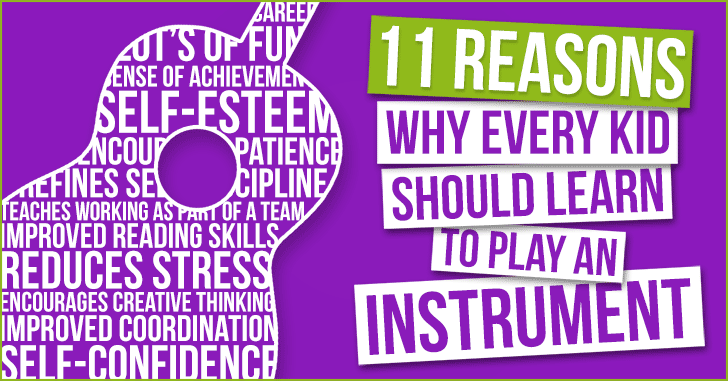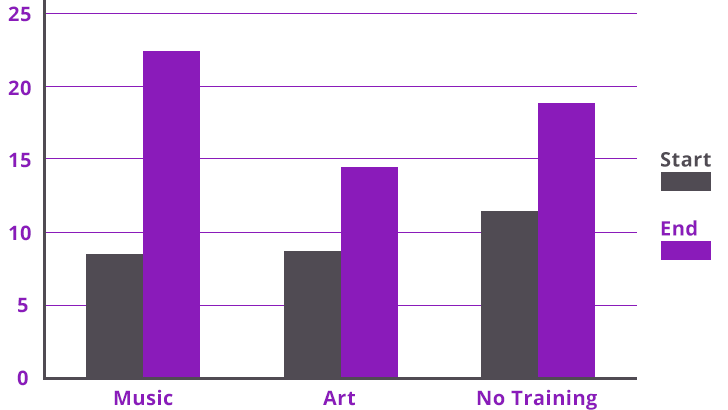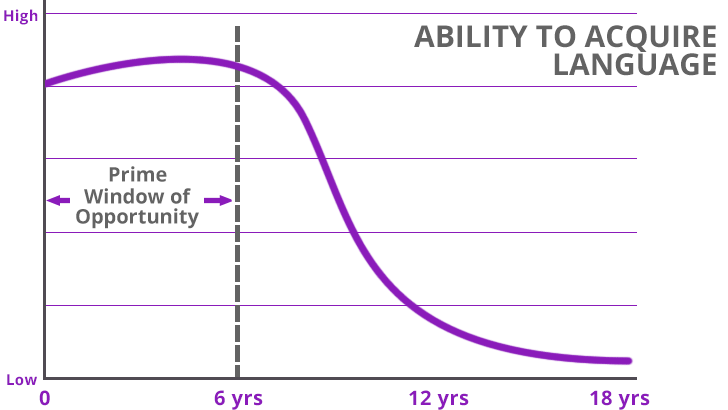There are so many benefits of music education, and i’m guessing that by clicking on this page you’re interested in finding out about them, right? Let’s take a look see…
Improved social skills, higher self-confidence, reduced stress levels, a sense of achievement, boosted intelligence…the benefits of music education are almost endless. By the time you finish reading this page you’ll be under no doubt that your child learning an instrument is a no-brainer.

11 Fantastic Benefits of Music Education
I’ve detailed my top 11 benefits of music education below, but rest assured, there are many more! However, I feel that 11 reasons is plenty enough to persuade you that your child should make learning to play an instrument a fun and integral part of their life.
1. Improved Coordination
Playing sports promotes better hand-eye coordination, and learning an instrument is no different! Teaching yourself an instrument actually causes the parts of your brain that control motor reflexes to become stimulated and grow. For most instruments, both hands are required to perform different tasks simultaneously – this necessitates a great deal of hand-eye coordination.
2. Teaches Working as Part of a Team
Being an integral part of a band or orchestra will teach a child the value of working as part of a team. Children will learn how to work with people rather than as an individual, a hugely important skill which will benefit them throughout life. Being regularly exposed to being around other musicians will also help to greatly improve social skills.
3. Improves Reading Skills
A recent study by Iris Rautenberg indicates that musical education at a young age may have additional positive effects on reading ability. The study, which examined the effects of musical training on the decoding skills of primary school children included 159 German first graders. The students were split into 3 groups, with one receiving musical training, one being training in art, and the final group received no training at all.
The results were recorded over 8 months and can be seen in the graph below which shows single word accuracy at the beginning and end of the study.

As you can see, the group which was given training in music was able to increase their reading accuracy at a much greater speed, and to a higher level than the two control groups.
4. Encourages Creative Thinking
Another of the many benefits of music education is that kids who learn to play an instrument also learn to think with a more creative mindset. This will help them to become creative problem-solvers, able to think outside of the box and realise that there may be more than one correct answer to a problem.
This is crucially important in the 21st century, where we see a trend of more and more jobs appearing in the creative and artistic fields. That’s right, learning an instrument now could help them land their dream job later on in life!
5. Refines Self-Discipline and Patience
Children who learn an instrument will have to set aside time each day in order to learn and improve. You cannot do this without developing self-discipline and the patience required to master the instrument. Similarly, a great deal of self-discipline is necessary if also taking part in musical exams to achieve grade proficiencies.
6. Reduces Stress
The soothing effects of music are well known. Playing music is useful in helping kids to relax during times of stress, thereby improving physical and emotional health. When we sense a potential threat in our surroundings, genes within our body’s cells produce chemicals which are associated with the stress response. Researchers have found that playing a musical instrument counteracts these chemicals by turning the genes back off.
A 2013 study which examined the cardiovascular health of musicians and non-musicians, found that the blood pressure and heart-rates of musicians tended to be significantly lower than the non-musician group.
7. Boosts Sell Esteem
Children who might struggle with academic subjects and lack self-esteem because of it, may come into their own when studying a more creative pursuit such as musical education. As your child progresses with their instrument and receives encouragement from parents, teachers and friends, their self-confidence will sky-rocket.
8. The Ability to Learn is Greater at Younger Ages
It’s common knowledge that young children are programmed to act like sponges when it comes to picking up language skills, and there is a prime window of opportunity during which this ability is at its greatest. If you can consider learning music as akin to learning a second language, you will see why it can be hugely beneficial if your child is motivated to learn guitar from a young age.
The graph below plots a child’s ability to acquire language as they develop. As you can see, after the age of 6 this ability tails off dramatically, and all but disappears around the age of 13.

9. Sense of Achievement
Learning to play a piece of music on a new instrument, or even just mastering a single chord will be a challenge for anyone. But it is also an achievable challenge for anyone. Children who manage to master even the smallest of goals will feel a great sense of accomplishment. Mastering a really tricky piece of music gives a sense of satisfaction which is absolutely priceless.
10. Benefits Later on in Life
As people become older, changes happen within the brain that leads to a lesser ability to interpret speech. We’ve all experienced it when we visit Grandma and have to talk slower and enunciate more clearly, right? A 2012 study found that adults who received musical training at an early stage in life were able to largely avoid this problem. The study showed that adults with a background in music had a much faster response to speech when compared to those with no musical training.
11. Playing an Instrument is FUN!
The most important of all of the benefits of music education is that playing and making music is just plain FUN! So get started today!



